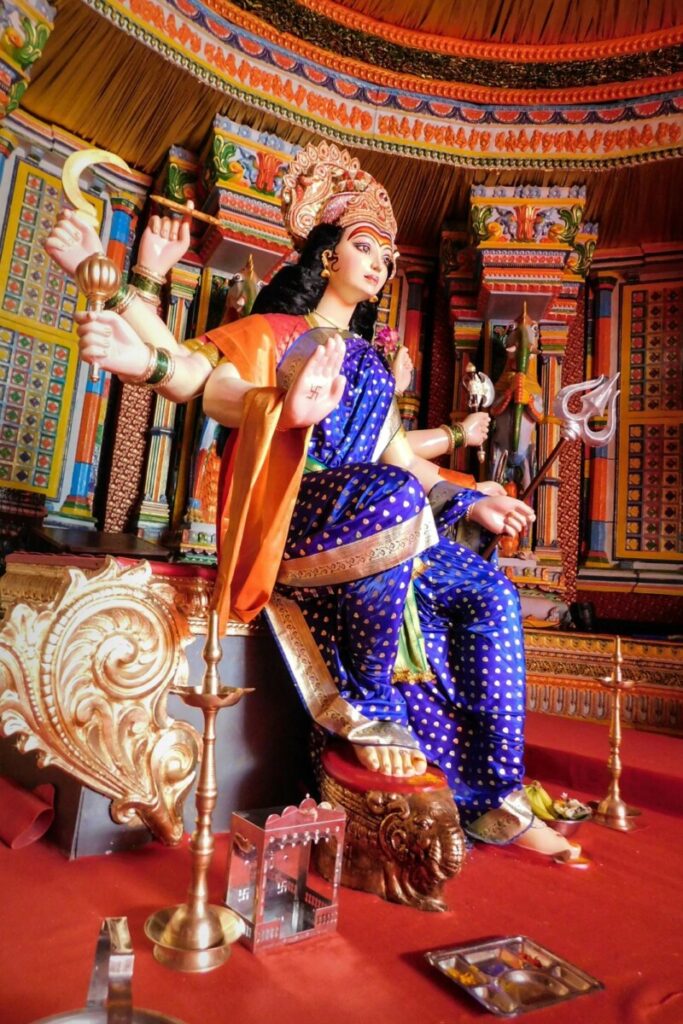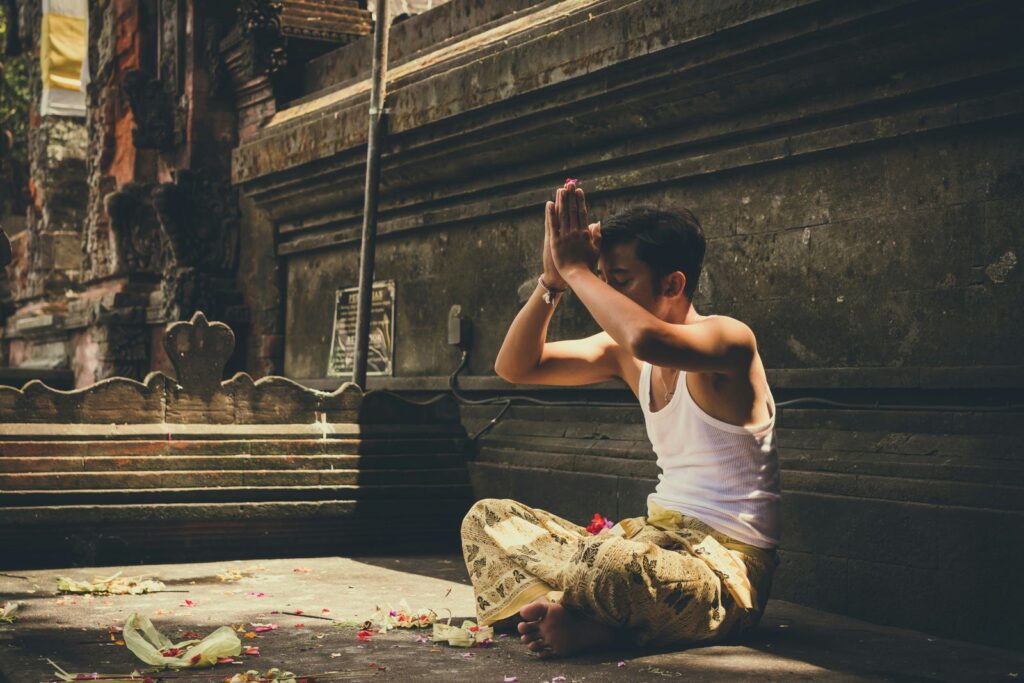We live in a world where spiritual beliefs have influenced every aspect of society; in history, culture, politics, and daily life, and traveling is a way to experience it firsthand and learn.
At Cooperating Volunteers, we carry out different volunteering experiences all over the world, and each country has its own culture, traditions, and way of life. That’s why this international volunteering experience is a purposeful and immersive journey.
Today we want to talk to you about some of the religions that exist in the world and how they have influenced in different ways depending on where they are practiced.

Did you know it is estimated that there are more than 4,000 different religions?
The exact number of religions in the world may vary depending on how they are defined and classified. The main or most practiced ones are: Christianity, Islam, Hinduism, Buddhism, Judaism, Sikhism, Taoism, Confucianism, Jainism, Bahá’í Faith, Zoroastrianism, and Shintoism.
Had you heard of all of them?
There are also indigenous and traditional religions, of which there are thousands, as they are specific to certain cultures, tribes, or animist religions of Africa, the Americas, and Oceania.
And on the other hand, there are hundreds of new movements, sects, and modern spiritual currents (for example, Scientology, Raelism, Wicca, among many others).
Many of them are not well known and therefore not as much information is available, but today we’ll give you a brief overview of the main ones.
– CHRISTIANITY
Currently the most practiced religion in the world, with more than 2.3 billion believers, representing nearly 31% of the population. Its origin dates back to the 1st century in Judea (modern-day Israel/Palestine), and the founder was Jesus of Nazareth.
The main beliefs that identify Christianity are: Jesus is the Son of God and savior of the world, there is one God in three persons (Father, Son, and Holy Spirit – the Trinity), salvation through faith, love, and obedience to God, and the Bible as the sacred text.
The main branches within Christianity are: Catholicism, Protestantism (Evangelicalism, Baptists, Pentecostals…) and Eastern Orthodoxy.
This religion is dominant in the Americas, Europe, Sub-Saharan Africa, and Oceania.
– ISLAM
It is the second most followed religion in the world, covering 25% of the global population with more than 1.9 billion people. Its origin dates back to the 7th century in Mecca (Saudi Arabia), and the founder was Muhammad (the prophet).
Its main beliefs are: one God – Allah, Muhammad is His final prophet, the Quran is the sacred book dictated by God, and there are five pillars of Islam: faith, prayer, charity, fasting during Ramadan, and pilgrimage to Mecca.
The main branches are Sunni and Shia.
Islam is growing strongly in Africa and Asia.
– HINDUISM
With over 1.2 billion followers, representing 15% of the world’s population, it becomes the third most followed religion in the world. Its origin dates back more than 4,000 years in India, and it has no single founder.
Main beliefs include: Polytheism, but also forms of monotheism, reincarnation and karma, liberation (moksha) from the cycle of lives, the Vedas and other sacred texts, and various popular gods: Vishnu, Shiva, Brahma, Lakshmi, among others.
This religion is mostly concentrated in India and Nepal.
– BUDDHISM
With more than 500 million followers, it ranks fourth, encompassing 6% of the world population. Its origin dates back to the 6th century BCE in India, and the founder was Siddhartha Gautama (Buddha).
The main beliefs of Buddhism are: Life is suffering, but it can be overcome, the middle path, ethics, meditation and wisdom, reincarnation and karma, and the goal is to reach nirvana (liberation from suffering).
The main branches are: Theravāda (more traditional), Mahāyāna (more flexible and widespread), and Vajrayāna (Tibetan Buddhism).
Most represented in East Asia and Southeast Asia.
These are the four religions that top the list as the most practiced or followed in the world.

– SIKHISM
Sikhism is followed by more than 25 million people, and its origin dates back to the 15th century in India (Punjab). The founder was Guru Nanak.
The main beliefs are: one universal God, equality, social justice, service to others, and the sacred book is the Guru Granth Sahib.
– JUDAISM
With over 15 million followers, Judaism originated more than 3,000 years ago in the Middle East. The traditional founders were Abraham and Moses.
Main beliefs include: One God (Yahweh), a chosen people with a covenant with God, sacred texts: Torah (first five books of the Bible), and strict religious practices and dietary laws.
– TAOISM
It has approximately 12 million followers, mainly in China, and its origin dates back to the 6th century BCE. The founder was Lao-Tzu.
Main beliefs of this religion are: Living in harmony with the Tao (the Way) and not forcing things, following the natural flow. The key text is the Tao Te Ching.
– CONFUCIANISM
It has approximately 6 million followers, though a much greater cultural influence, and also dates back to the 6th century BCE in China. The founder was Confucius, and more than a religion, it is a philosophy of life.
Its core values are based on: Respect for family, hierarchy and traditions, and morality, duty, education, and social harmony.
– JAINISM
Jainism has about 5 million followers, mainly in India, alongside Hinduism. Its founder was Mahavira.
Main beliefs include: Extreme non-violence (ahimsa), reincarnation and spiritual liberation, and asceticism and self-control.
– SHINTOISM
It has approximately 3 to 4 million followers, but in Japan it is practiced more culturally. Its origin comes from ancient Japan, and no specific founder is noted.
Main beliefs include: Spirits of nature (kami), ritual, purity, and respect for ancestors, and it is closely tied to Japanese culture.
– BAHÁ’Í FAITH
With approximately 5 to 7 million followers, its origin dates back to the 19th century (modern-day Iran), making it a relatively new religion compared to all the others. The founder is Bahá’u’lláh.
Main beliefs include: Unity of all humanity and all religions, one God, and progressive revelation through different prophets.
– ZOROASTRIANISM
With around 100,000–200,000 followers, it also dates back more than 3,000 years in Iran. The founder was Zoroaster.
Main beliefs of Zoroastrianism are: Dualism between good (Ahura Mazda) and evil (Angra Mainyu), free will, ethics, and final judgment.

Is there any religion you’d like to learn a little more about? Clearly, this is just a brief overview of each of them, as they have a long history that has shaped the culture of many communities.
The magic of the world we live in lies in its cultural richness, and when we travel we broaden our horizons by learning and discovering other ways of living.



